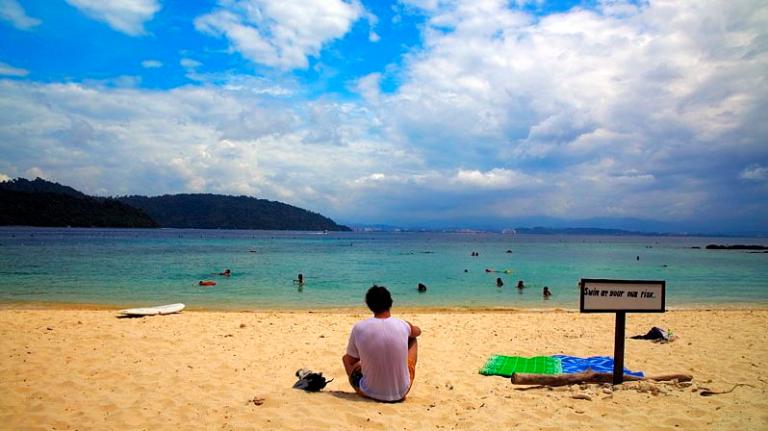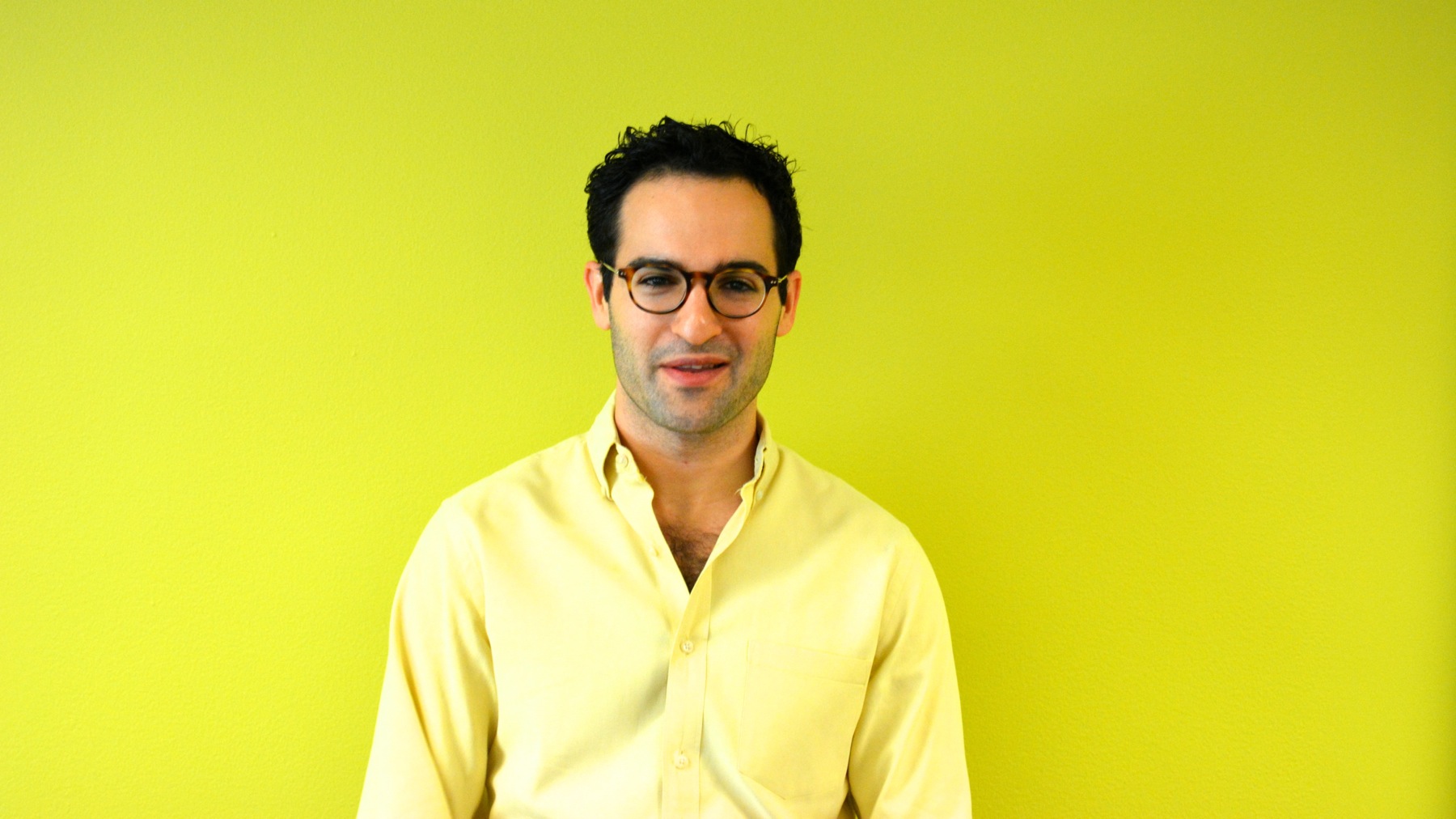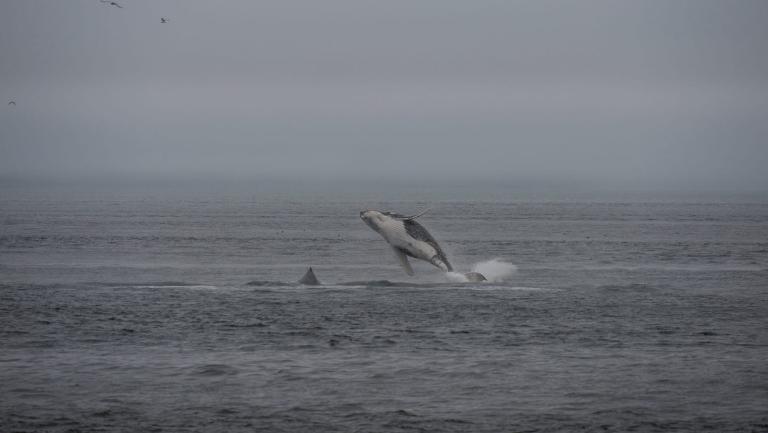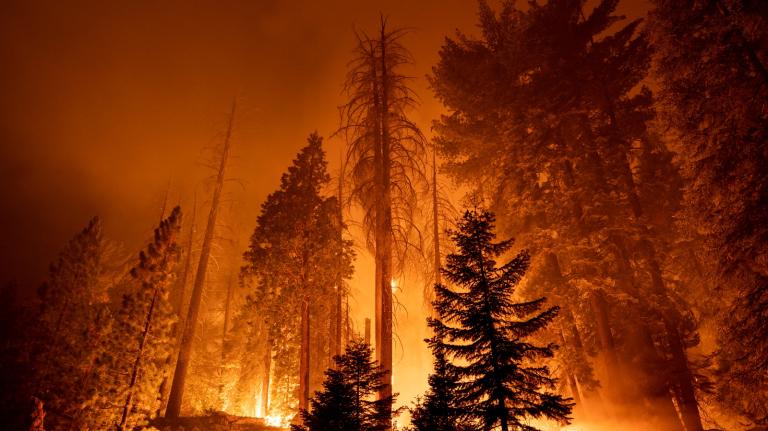It’s hard to pick a more onerous presence in the global economy than oil. It’s messy: It spills, it poisons, it explodes. Our insatiable demand for it drives CEOs to flagrant disregard for the rights of communities and the integrity of natural environments in all corners of the globe, all in the name of producing more and more barrels that sell for $100 a pop. All of this has been going on for decades — but a 25-year-old Rhodes Scholar from central Western Massachusetts is trying to change that.
David Poritz is the founder of Equitable Origin (EO), an organization that’s developed a gold standard, socially and environmentally speaking, for oil and gas extraction sites. Starting when he was a sophomore at Brown University, he spent three years working with NGOs, oil executives, environmental scientists, public officials, and indigenous communities to design the EO100 Standard, an extensive set of provisions that act as a benchmark against which oil companies’ practices can be measured. Poritz’s goal is to push the oil and gas industry, that bête noire of the green movement, toward environmental and social responsibility. Just this month, EO beefed up its own credentials by becoming the first B Corp in the oil and gas industry, and also a member of the ISEAL Alliance. A documentary about Poritz’s journey to founding EO, Oil & Water, debuted this week at the Seattle International Film Festival.
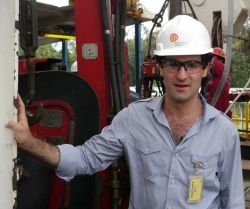
Provided by David Poritz
This summer, EO expects to finalize certification of its first two sites, which are both owned by Pacific Rubiales, the largest private operator in Colombia, and make up 23 percent of the nation’s oil production.
I got to sit down with Poritz and talk about how a green oil industry can change from an oxymoron to a reality, and why it’s so urgent that it does.
Q. Why are you trying to make oil and gas more sustainable, rather than focusing on renewable sources of energy?
A. I think that the issue of our generation is climate change — there’s no argument there. And I’m the biggest advocate for transitioning toward a renewable energy economy. But we have to put on our pragmatic hat and look around us right now — the plastic chairs that we’re sitting on are probably made of petroleum derivatives, the cars driving by are using combustible fuels. As we make a transition away from an economy based on fossil fuels, I think we have an obligation as a global community to mitigate the impacts associated with extracting that resource. So as we move away, let’s also make sure that at every site that is continuing to produce oil and gas, we are dramatically pushing the bar so that communities are left better off and with better opportunities, and that the environment is not harmed as a result of the extraction.
One of the founding principles behind EO is that to improve something, you need to be able to measure it. We’ve created a benchmark for the first time, so that companies across the board can really be compared against one another and leaders can be highlighted, and the companies that are lagging can be recognized for that. I think that to believe that every company can reach these standards is not realistic, but I think that through implementing these standards we can dramatically raise the bar in a big, rigorous way.
Q. Do you believe that oil and gas companies actually want to become more sustainable? Will they take these standards seriously?
A. I know this might come across as naïve or overly optimistic, but I really believe that in the future, for the extractive industries in particular, business as usual is not going to be a viable option from a strictly financial perspective. Today, communities [in which extraction is happening] are more mobilized, they’re more informed, and there’s more oversight. So as a result of that, companies need systems that can actually incentivize them and differentiate them, rather than end up in lawsuits and legal battles.
When we first started EO [in 2009], the responses we got from oil companies were different than they are today, and that’s a reflection of how the world is changing and how companies are changing. Some companies just say, “We’re already doing the best, we don’t need independent verification.” But we’re realizing that a lot of companies are also recognizing that since communities are more empowered and connected now, they’re really pushing for increased recognition of their rights. And that is pushing oil companies to respond. So whereas companies used to be able to literally bulldoze through a community, that trend is changing, and many governments are recognizing that that is no longer acceptable. And because of that, companies are looking for tools that can differentiate them and show that they are in fact implementing best practices.
Q. Speaking of legal battles: You were first introduced to the issue of oil contamination, and its enormous social consequences, via the Chevron disaster in the Ecuadorean Amazon.
A. When I was 12 years old, I had the opportunity to meet Cristobal Bonifaz, the lawyer that started the Chevron case. I was really, really passionate about it. I got to travel to Ecuador with Cristobal, and I saw this issue in such a real and visceral way — it was just so in my face. When you see this green jungle and all of the oil contamination, and you see the economic reliance that Ecuador and these other countries have on these industries, you realize that you have to do something about it. And then my whole middle and high school experience became really defined by this issue — I was just always in Ecuador.
To say that case is a legal saga would be an understatement — it’s an incredibly politicized, complicated issue. And while I was working on it with Cristobal, I realized that although the underlying issues were important, the solutions, I did not believe, could be found just in continuing the legal battle. I thought we needed more proactive solutions, and I started thinking about what was needed in the industry that had caused all this damage.
Q. Right now, the EO standard is focused on oil and gas ventures in the Andes region. Do you have any plans to develop a standard for domestic sites?
A. We’ve been around for about five years. Our first area of focus was conventional oil and gas drilling, and not the use of fracking. We believe that the standard we have is applicable, with some changes, to domestic natural gas production, but we want to better understand the science before we get involved. We think it’s really important that, before we do jump in, the science catches up, and that there’s more consensus on what the impacts are, so that we can ensure that our system adequately addresses those concerns.
Q. Do you see a serious transition away from a fossil fuel–based economy happening in our lifetime?
A. I think that it has to — it’s an imperative. So to me, the question is more: How long is that going to take? I think that we can find tools and mechanisms to ensure that it happens as soon as possible. EO is an important component in making sure that that happens, and making sure that the legacy of oil is the least harmful possible.
